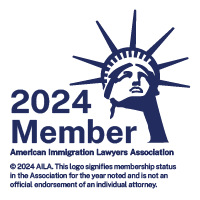Many of my clients came to the United States from Russia and Ukraine as Lautenberg Parolees. This is a very special category of people who applied for but were denied refugee status in the former Soviet Union. Despite their denial by the U.S. Embassy in Moscow, they were still allowed to enter the U.S. as Lautenberg Parolees with the subsequent benefit of being able to apply for Green Cards after being in the States for a year. Those readers who are not familiar with this special program might like to read about it below. Although it is no longer available under the Lautenberg Amendment, Lautenberg Parolees who managed to enter the U.S. before the end of the program in 2011 are still eligible to file and obtain a Green Card in the United States.
Green Cards for Lautenberg Parolees
The Lautenberg Amendment to the Foreign Operations Appropriations Act allows certain individuals that were denied refugee status to be inspected and paroled into the United States on a humanitarian basis. These individuals were processed overseas in Moscow through the Moscow Parole Program before traveling to the United States. After 1 year of residence in the United States, these individuals may then apply for a green card without regard to visa availability.
Until the end of the Moscow Parole Program in 2011, this provision was limited to those from the former Soviet Union, Estonia, Latvia, Lithuania, and include Jews, evangelical Christians, Ukrainian Christians of the Orthodox and Roman Catholic denominations, and others. Prior to mid-1994, these provisions were available to certain individuals from Vietnam, Cambodia, and Laos, in addition to individuals from the former Soviet Union. This provision is included in Public Law 101-167 and 8 CFR 245.7.
Eligibility Criteria
You may be eligible to apply for a green card (permanent residence) as a Lautenberg parolee if:
Application Process
To apply for a green card, you will need to file Form I-485, the Application to Register Permanent Residence or Adjust Status, with supporting evidence, including evidence of denied Refugee Status. It is highly recommended that you seek the advice of an immigration lawyer to guide you in this process.
Work & Travel Authorization
Generally, when you have a pending Form I-485, it is possible for you to apply for authorization to work in the United States and to seek advance parole (advance permission to travel and be admitted to the United States upon your return).
